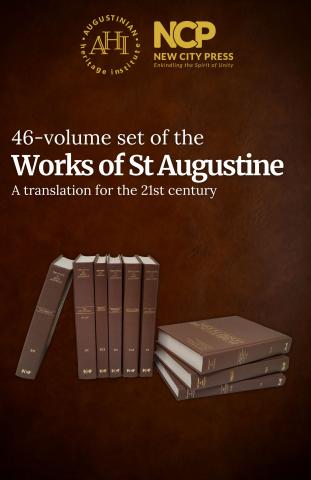
The Trinity

About the book
In the first seven books Augustine searches the scriptures for clues to understanding the Trinity and then defends the orthodox statement of the doctrine against the Arians. In the last eight books Augustine seeks to understand the mystery of the divine Trinity by observing an analogous trinity in the image of God, which is the human mind; and in so doing, he also suggests a program for the serious Christian of spiritual self-discovery and renewal.
Augustine knows by faith that God is a trinity, Father, Son and Holy Spirit, and he is seeking as far as possible to understand what he believes. In the first seven books Augustine begins by searching the scriptures of the Old and New Testaments for clues to understanding and then argues in the language of philosophy and logic to defend the orthodox statement of the doctrine against the Arians. In the last eight books Augustine seeks to understand the mystery of the divine Trinity by observing an analogous trinity in the image of God, which is the human mind; and in so doing, he also suggests a program for the serious Christian of spiritual self-discovery and renewal. This second edition is newly produced, now featuring convenient footnotes rather than the previously used end notes in the original edition.
The Second edition of the Hardcover is newly formatted and features convenient footnotes rather than the previously used end notes in the original edition.
Clarification: On 18 occasions, the translator has put a section of Augustine’s own text into a footnote (see Translator’s Note for explanation). In the Second Edition, however, not all of these 18 Augustine notes were identified as such. We apologize for this oversight.
Reviews
What Father Hill has provided is a splendid translation, made from a trustworthy Latin text, of what is for some of us the foundation work of Christian theology. He has fitted out his translation, clearly the best of the four that have been made into English, with notes that go well beyond the perfunctory and a 38-page introduction that is a delight to read.
Hill has recovered the De trinitate for Augustine: its dynamism, its intimacy are back; the voice, that of the author of The Confessions and The Sermons, is once again recognizable to English readers.










